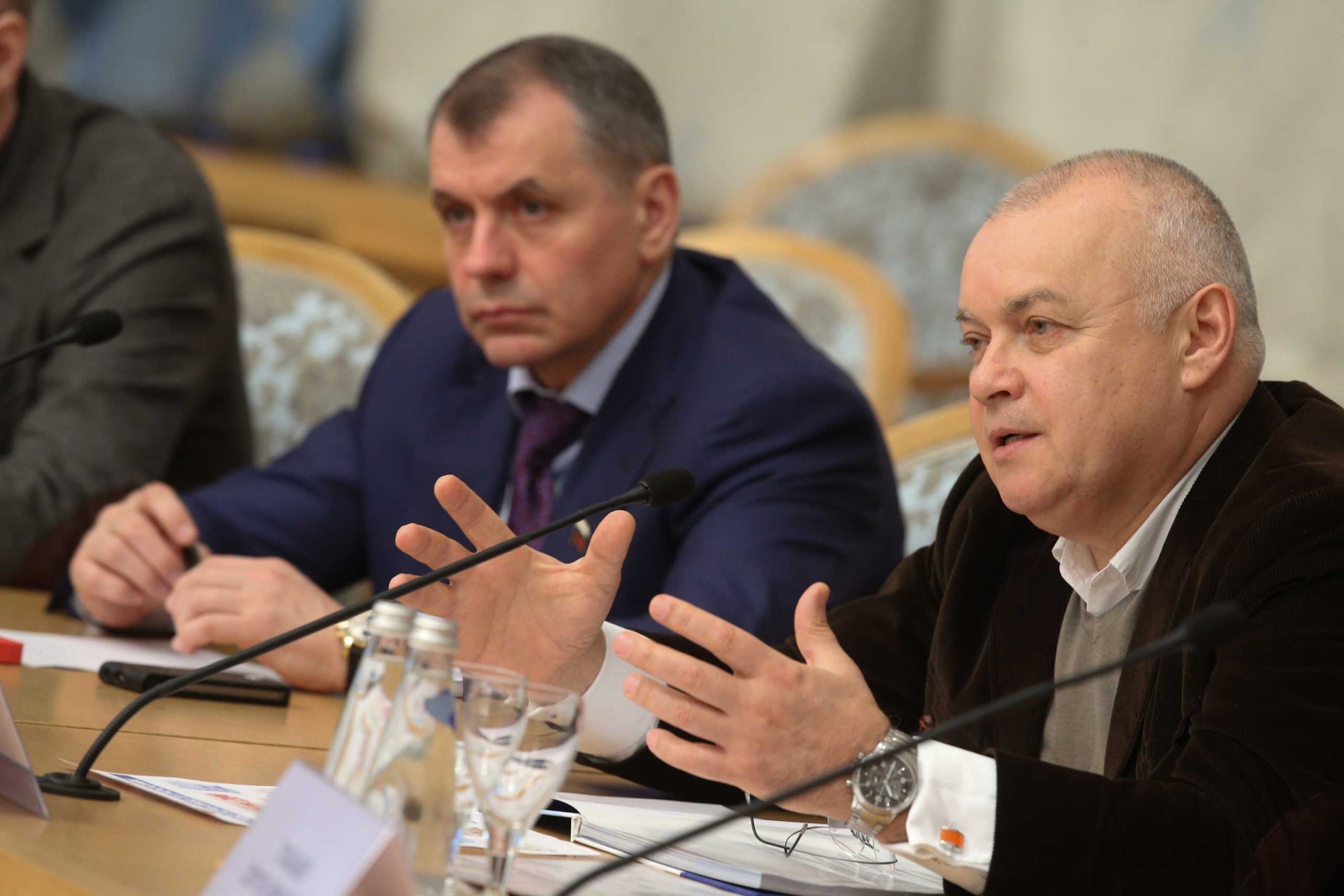
It was an awkward test for many Russian journalists. Last spring, their President tried to mislead them—and the rest of the world—by denying that he had sent troops to conquer Crimea. Even as they witnessed Russian forces sweeping that Ukrainian peninsula, reporters on the Kremlin’s payroll were obliged to go along with Vladimir Putin’s claims.
But a year later, the President came clean. In a documentary aired last weekend, he admitted ordering his troops to seize Crimea weeks before it was annexed into Russia on March 18, 2014.
“I told all my colleagues, there were four of them, that the situation in Ukraine has forced us to start working on returning Crimea to Russia,” Putin says in the film, recounting a late-night meeting with his security chiefs in late February 2014. “We can’t leave that territory and the people who live there at the mercy of fate.”
The confession didn’t leave any good options for Russian newsmen like Dmitri Kiselyov, who runs the Kremlin’s media conglomerate Rossiya Segodnya and hosts a prime-time news and analysis show on state TV. He could either admit to misleading viewers last year and, in effect, blame Putin for the deception, or he could deny that any deception had occurred.
Confronted this week with the dilemma, Kiselyov stuck to denials.
“Vladimir Putin never changed his position,” he told TIME on Wednesday at the headquarters of his media corporation in Moscow. “Look, he never said that our troops aren’t there, because we always had a base there,” Kiselyov said, referring to the Russian naval base in the Crimean city of Sevastopol. Pressed on the identity of the troops who had surrounded and in some cases besieged Ukrainian military bases in Crimea last March, Kiselyov said: “The troops surrounding them were local self-defense forces, but not Russian troops.”
It was an odd position to take. Although critics of the Kremlin have often accused Russian state media of distorting facts and misleading viewers, this is the first time that such a momentous distortion has been so clearly and demonstrably false, contradicting not only the version of events presented in most independent media but also out of sync with Putin’s own statements.
In early March 2014, Putin was asked during a press conference to identify the troops who were fanning out across Crimea, driving Russian military vehicles but wearing no identifying markers on their uniforms. “Why don’t you take a look at the post-Soviet states,” Putin answered, according to a transcript on the Kremlin website. “There are many uniforms there that are similar. You can go to a store and buy any kind of uniform.” The journalist persisted: Were they Russian soldiers or not? “Those were local self-defense units,” Putin said.
Compare that line to his confession in the documentary—which was titled, Crimea: Homeward Bound—and it is clear that Putin did change his position. Not only does the President admit in the film to ordering his security forces to take control of Crimea last spring, but he also claims to have overseen the operation personally. “Our advantage was that I was personally dealing with it,” he says.
This came on top of Putin’s admission last April, a month after the annexation, that “Russian servicemen did back the Crimean self-defense forces,” and that in doing so, they acted in “a civil but a decisive and professional manner.” Moreover, the dramatic re-enactments of the seizure of Crimea shown in the documentary this month clearly depict the invading troops as Russian military, not local self-defense units.
Yet Kiselyov still continues to deny that Russian troops ever intervened in Crimea. “They were near by, at the base,” he tells TIME. “If there had been a conflict there, they would have intervened. But they did not intervene.”
He is not the only senior figure in the Kremlin’s media empire to take this peculiar stance. Last fall, TIME put a similar round of questions to Margarita Simonyan, the editor in chief of RT, the state-funded television network that broadcasts around the world in English, Spanish and Arabic. She also stuck to the claims that Putin made in March of last year about the Russian troops in Crimea being local self-defense forces. Asked about the apparent change in Putin’s story after that, she replied, “He never said that we fooled you… He did not admit that earlier statements were untrue.”
Since the annexation of Crimea, a similar debate has been raging over the role that Russian troops have played in the war in eastern Ukraine, where more than 6,000 people have been killed amid fighting between Ukrainian military forces and Russia’s proxy militias. Even as Russian and foreign journalists have documented the presence of Russian military hardware and servicemen on those battlefields, Putin has repeatedly denied sending any of his forces to fight alongside Ukrainian separatists, which the Kremlin has also referred to as local self-defense forces.
Asked on Wednesday whether Putin might be similarly deceiving the public on this question, just as he did last year with the invasion of Crimea, Kiselyov replied that he was “100% sure” that there are no Russian troops in eastern Ukraine. And what if a year from now the President admits in another documentary that he did send his forces to fight in those regions? “So far that hasn’t happened,” Kiselyov said. But if it does, Russians shouldn’t expect their fourth estate to admit to spreading falsehoods. It is apparently easier to stick to their denials.
Crimea Celebrates Its First Anniversary Of Annexation By Russia
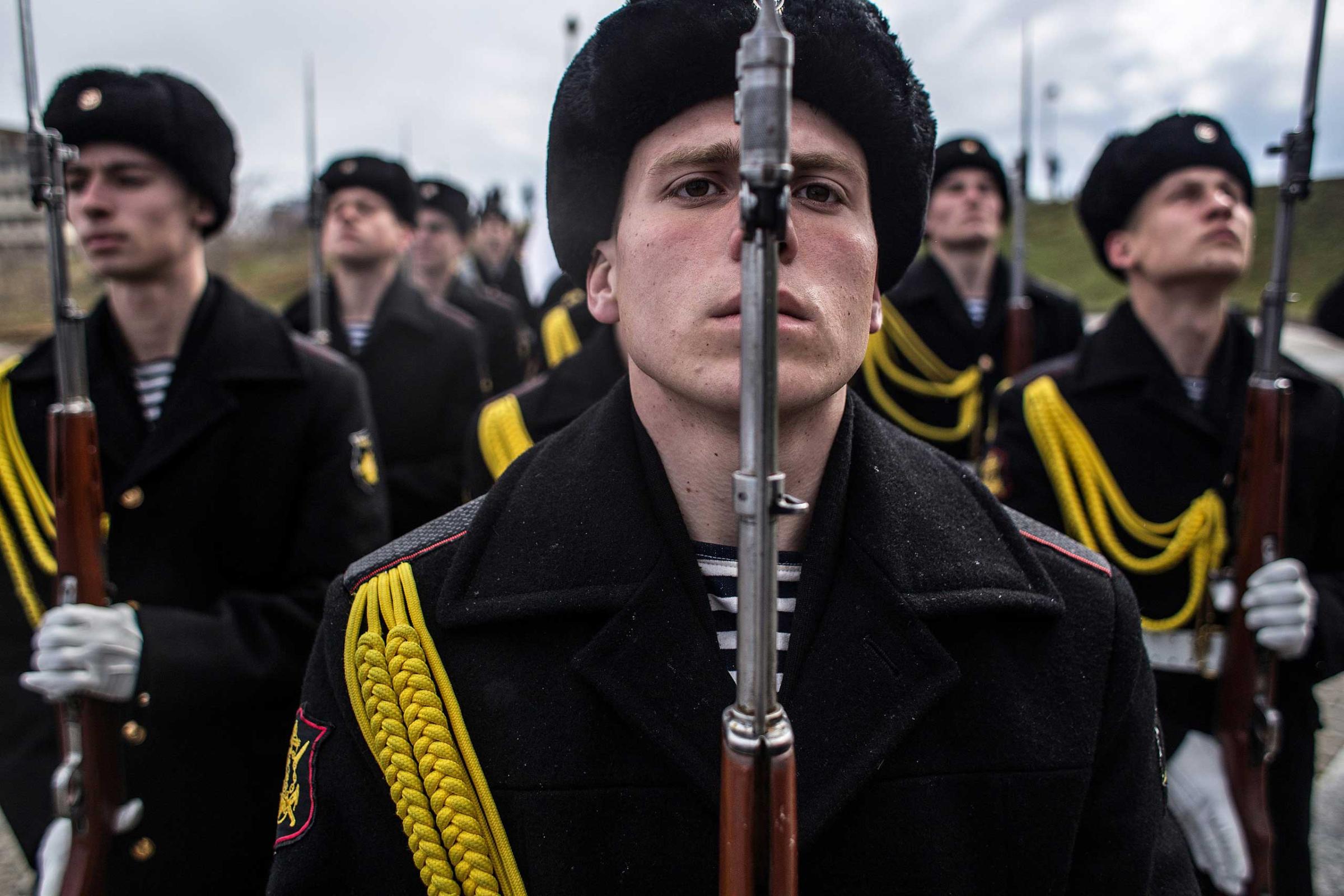
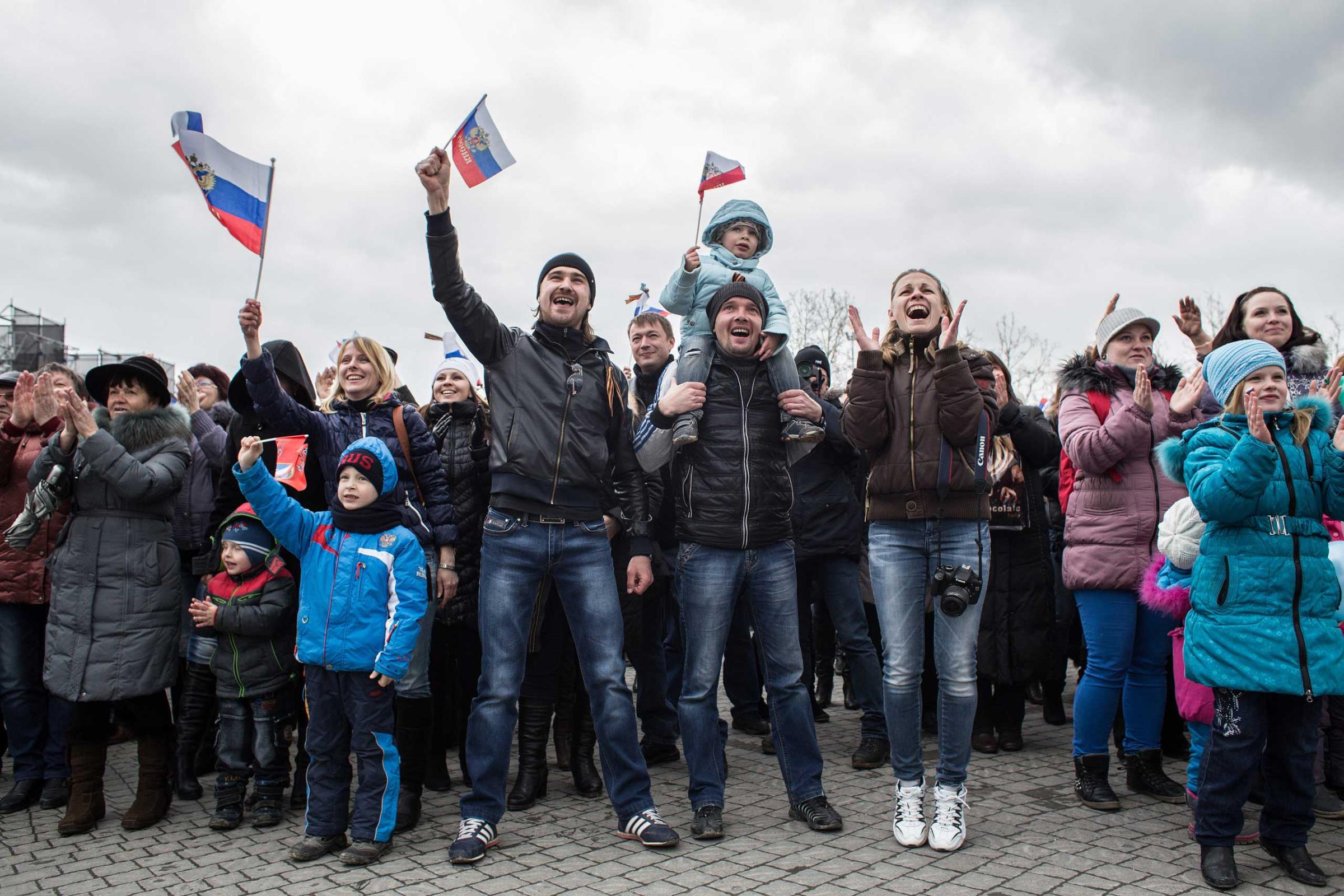
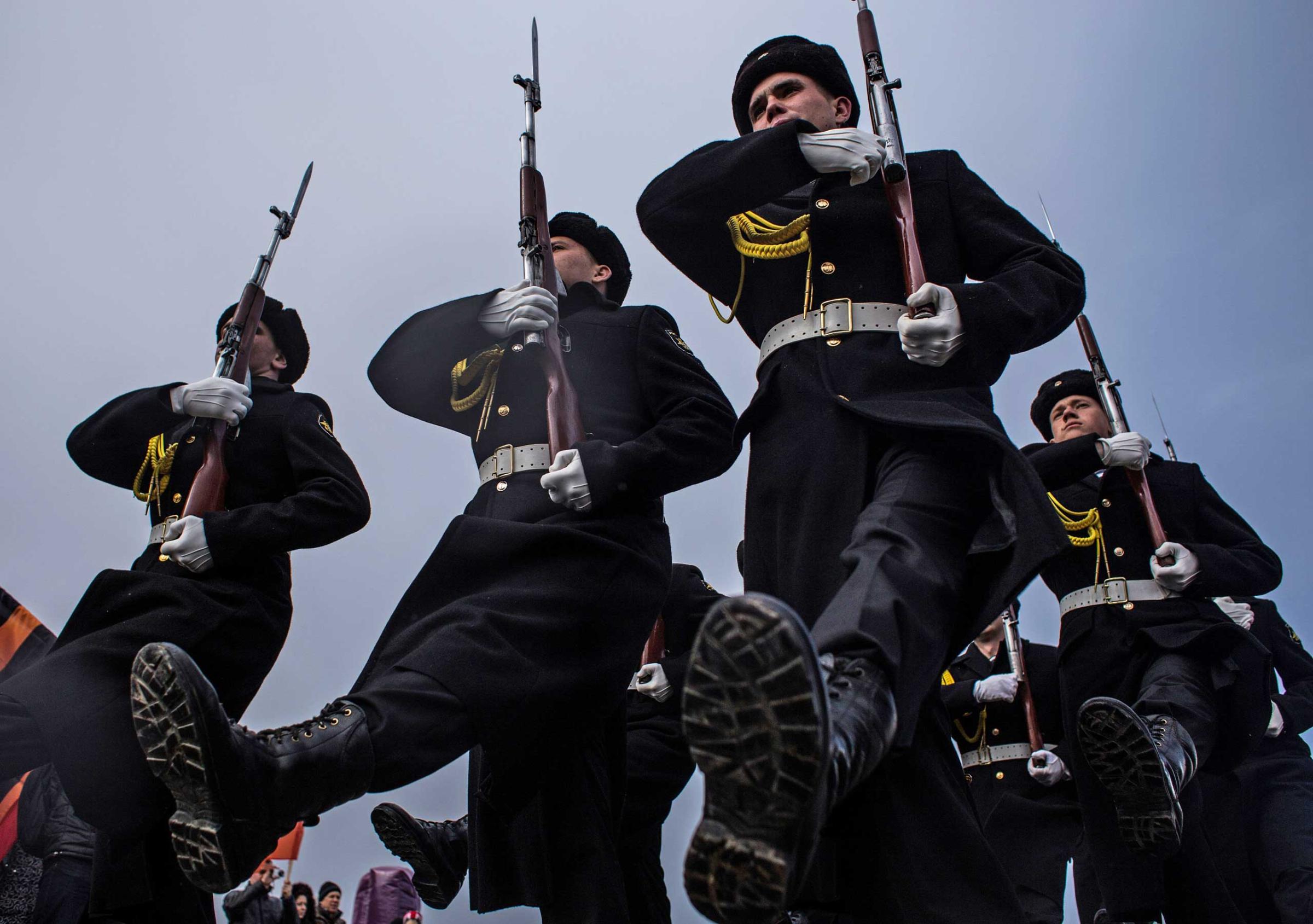
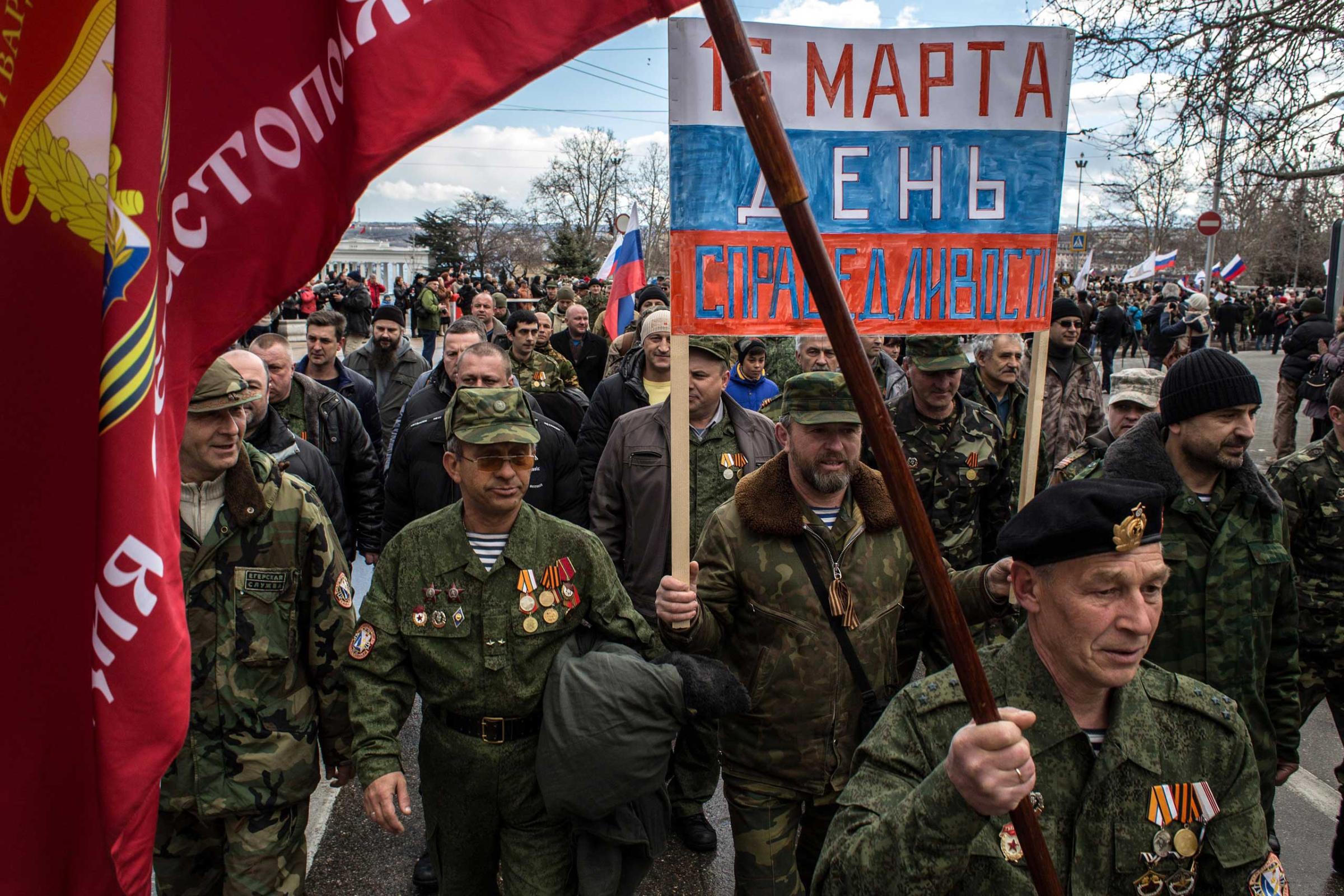
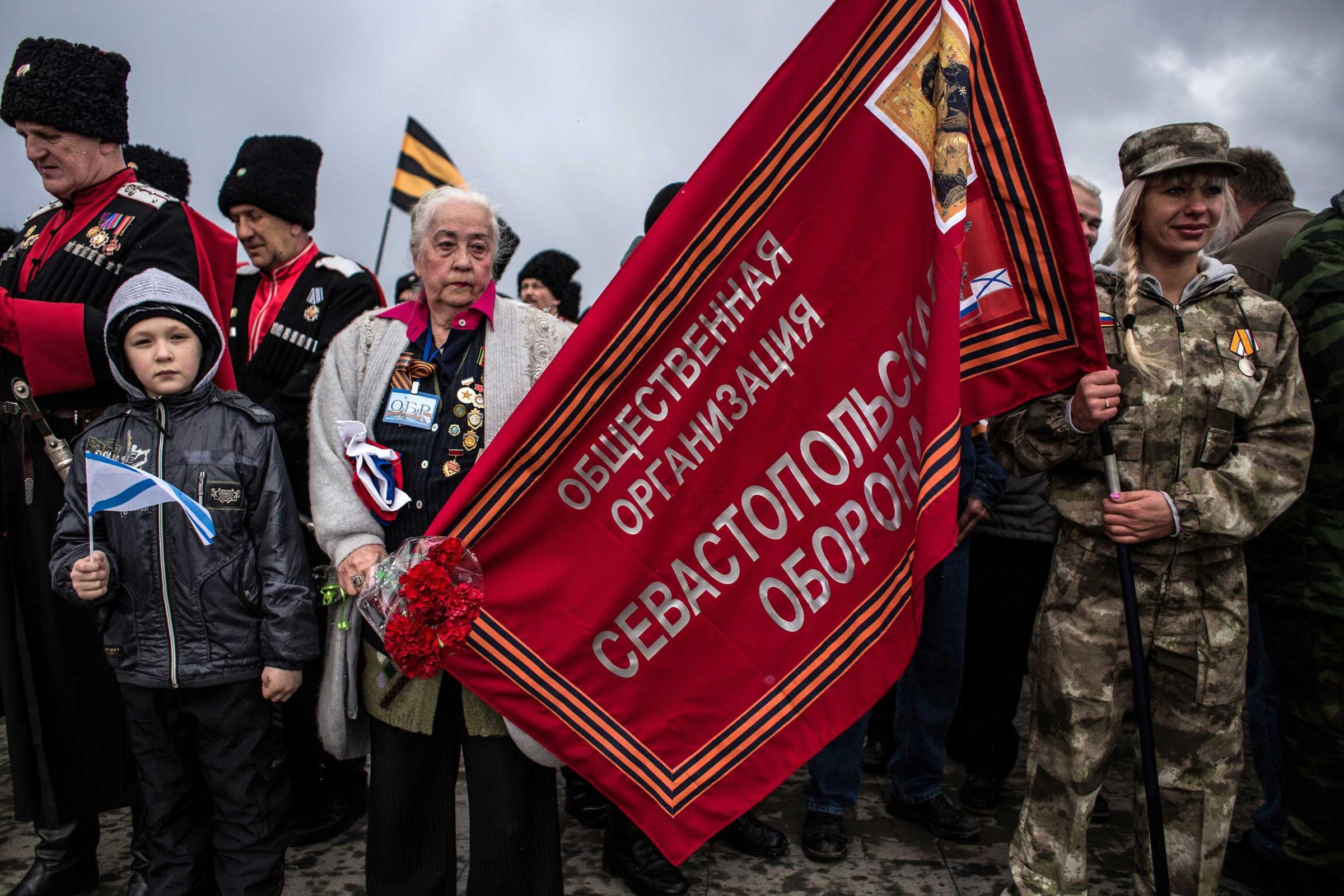
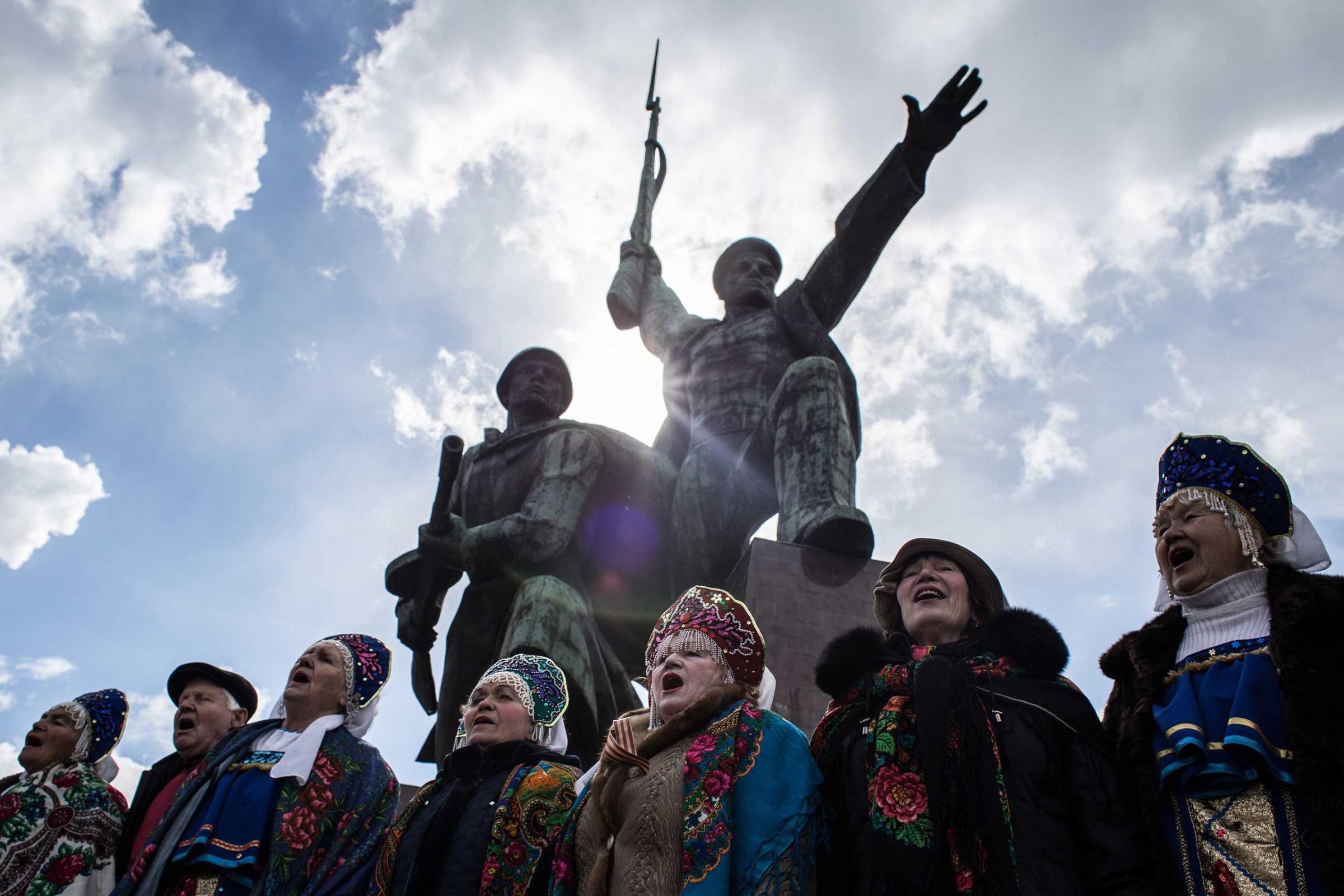
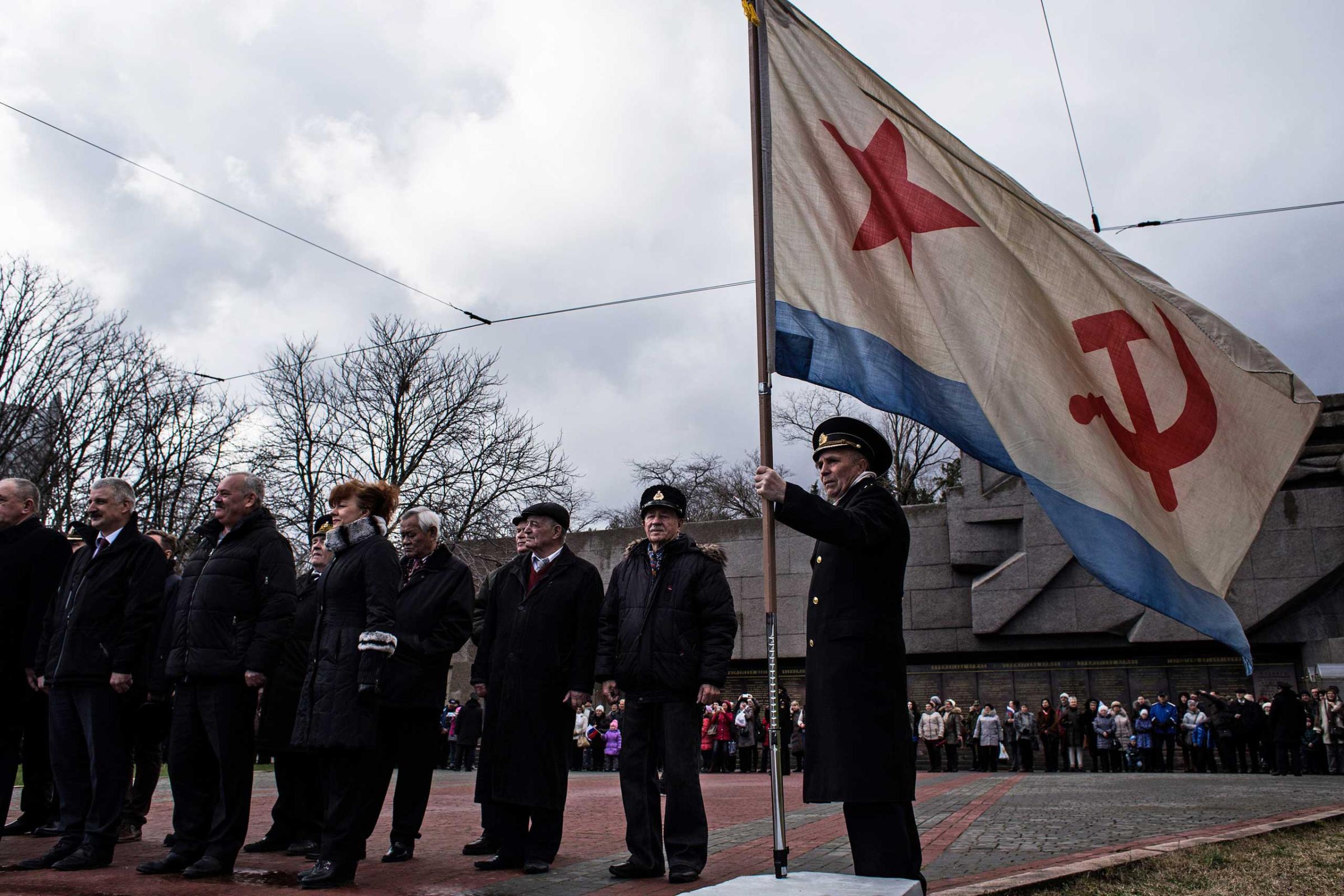
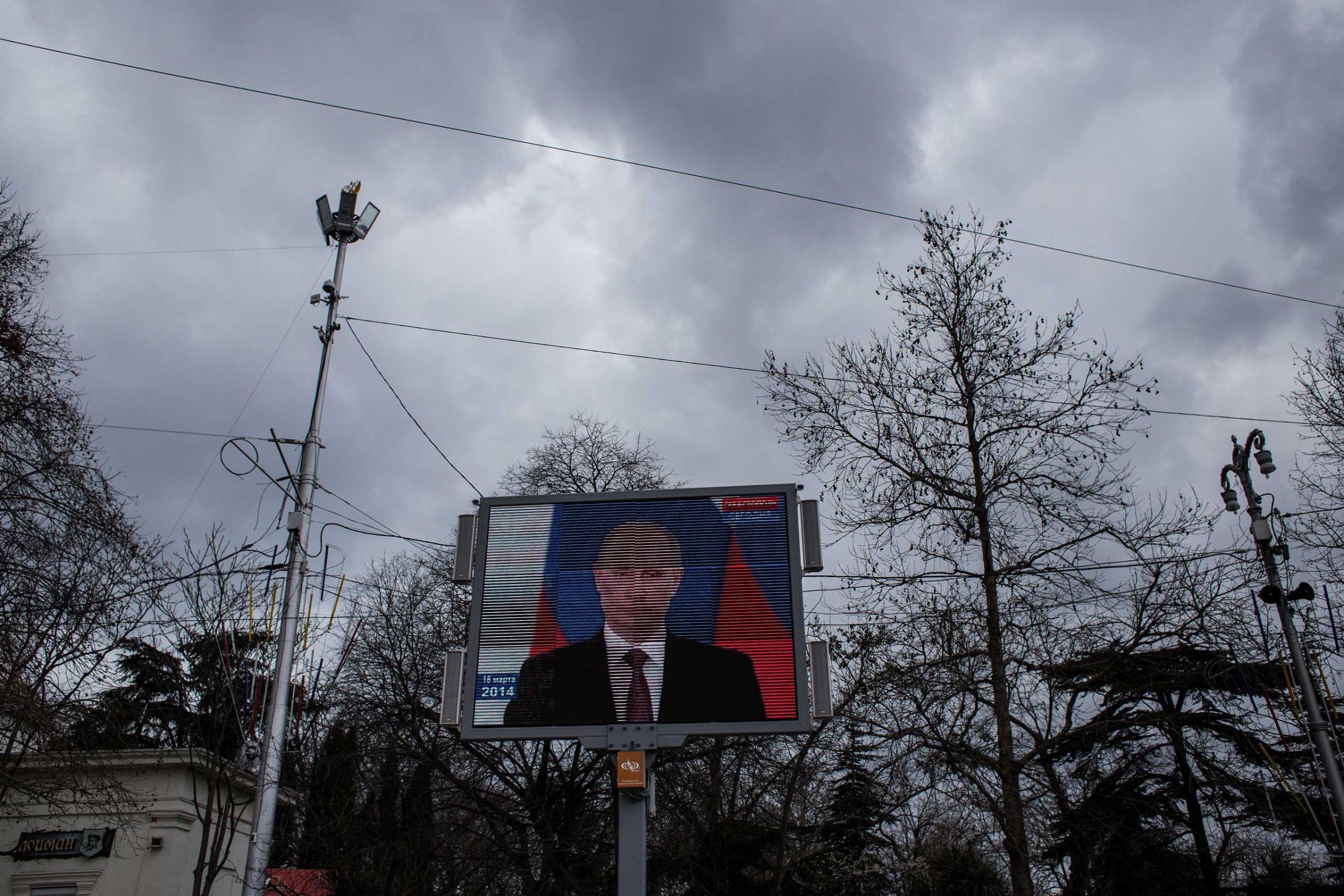
More Must-Reads from TIME
- Donald Trump Is TIME's 2024 Person of the Year
- Why We Chose Trump as Person of the Year
- Is Intermittent Fasting Good or Bad for You?
- The 100 Must-Read Books of 2024
- The 20 Best Christmas TV Episodes
- Column: If Optimism Feels Ridiculous Now, Try Hope
- The Future of Climate Action Is Trade Policy
- Merle Bombardieri Is Helping People Make the Baby Decision
Contact us at letters@time.com